The genius of surrealism Remedios Varo: the pursuit of happiness from Europe to Mexico
Categories: Celebrities | Europe
By Pictolic https://pictolic.com/article/the-genius-of-surrealism-remedios-varo-the-pursuit-of-happiness-from-europe-to-mexico.htmlIn Europe, the artist Remedios Varo is little known — she did not find a place on the Olympus of surrealism next to Salvador Dali. But in In Mexico, she is considered a cult figure in art and a national pride. And this is despite the fact that Varo's talent was born and gained strength in another hemisphere — in distant Spain.
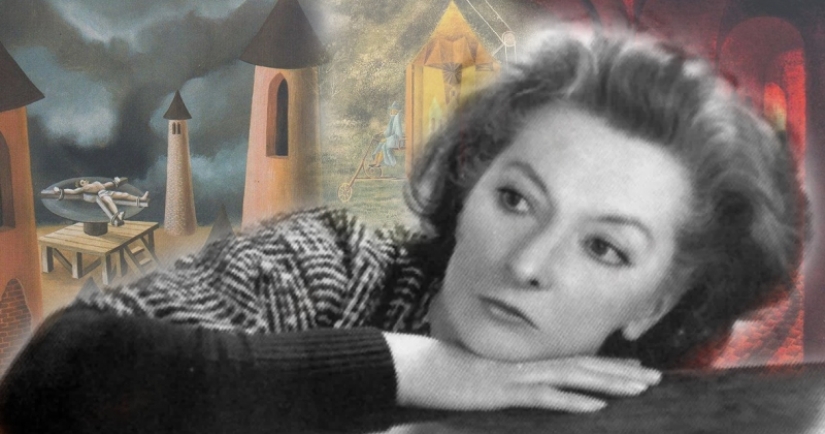
Maria de los Remedios Alicia Rodriga Varo y Uranga, which is exactly the full name of the artist, was born in 1908 in the Spanish city of Angles, in Catalonia. Her father was a sought-after hydraulic engineer, so his family moved a lot around southern Europe and Northern Africa.
Student of the University of Remedios Varo Uranga, 1930s
Despite his busy schedule, Rodrigo Varo devoted a lot of time to his beloved daughter — he taught her to draw and draw, hoping that in the future Remedios would also become a good technical specialist. Even at school, the girl began to help her father make drawings and sketches of equipment, and also showed a remarkable interest in the mechanisms themselves.
The first books of the young Remedios were adventure, but with an engineering bias — the future artist loved Jules Verne most of all. When Remedios grew up, her father began to bring her philosophical literature — he wanted his child to grow up fully developed. In parallel, Rodrigo Varo did everything for his daughter to draw and paint pictures, trying a variety of techniques.
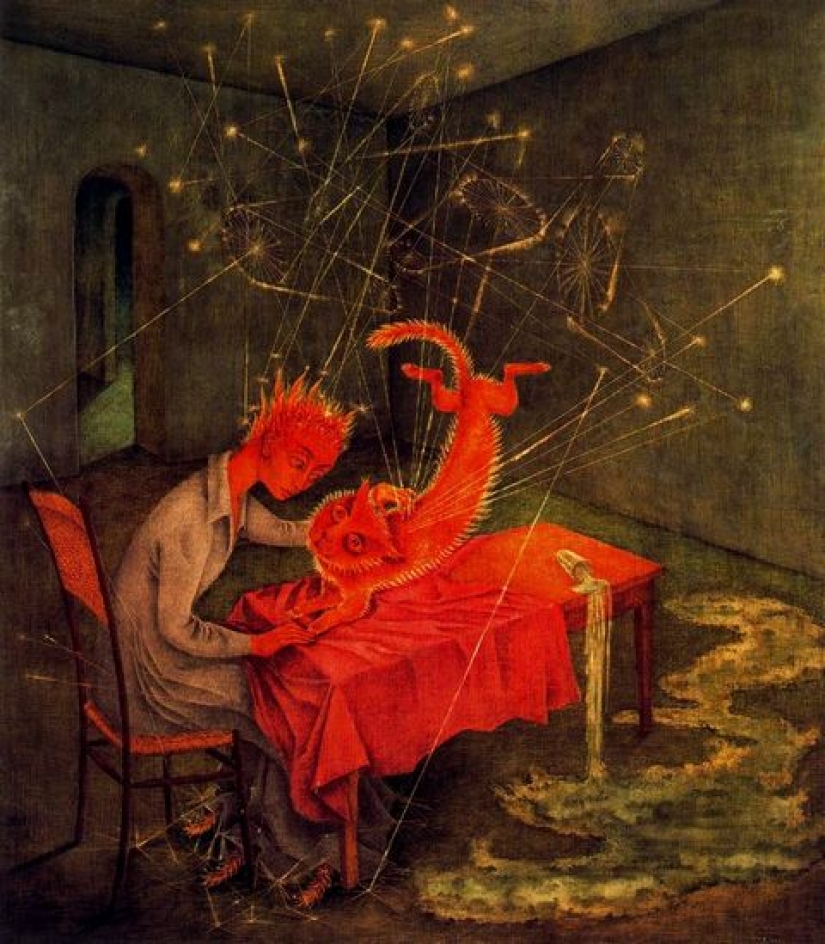
The girl's mother, the pious and assertive Ignasia Uranga, had a completely different approach. If the father wanted to see the daughter and sons of Rodrigo and Luis as specialists and creators, the woman passionately wanted them to devote their lives to the service of God. She arranged for Remedios to study at Catholic schools, in which the young person did not stay long. The constant attempts of the mother to impose her will brought up a real rebel in the girl.
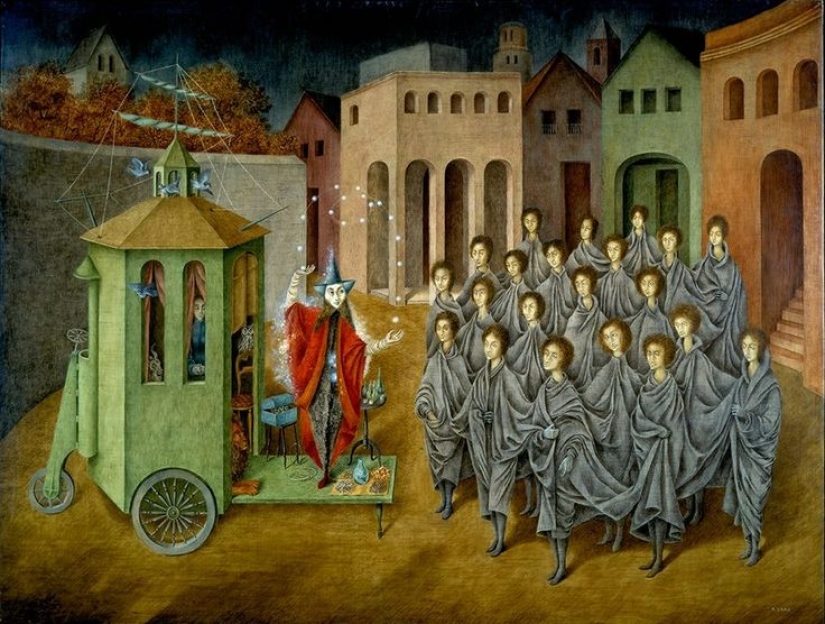
The girl already knew that she would be an artist and devoted all her free time to drawing and painting. Immediately after receiving her diploma, Varo married the artist Gerardo Lisarraga and soon the couple moved to the capital of art — Paris. But the couple did not stay in France for long and soon settled in their homeland, in Barcelona.
Very soon Remedios realized that Gerardo was not her fate and the couple broke up. Spanish laws did not allow divorce, but Varo left her husband forever, without scandals and maintaining excellent friendly relations. The peculiarity of the artist to leave beautifully was noted by all her men — she always parted easily, without complicating life for herself and her partner.
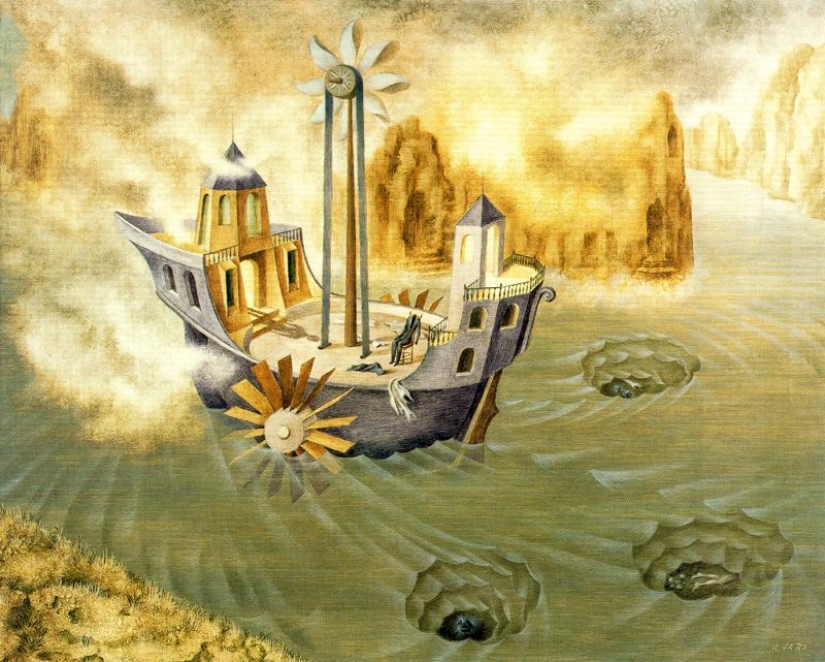
Soon Remedios met the artist Benjamin Pere, with whom she returned to France. The artist's new lover was not only a talented creator, but also a rebel, like herself. Because of the anti-government protests, the couple was even arrested in Paris and held in custody for some time.
Hardly had the upheavals caused by the political views of Pare and Varo passed, when a new trouble came. The Second World War began and Paris was occupied by the Nazis. The artists had to flee and they chose distant Mexico as a place to live and work.
In Mexico, the approach to art was more applied than in enlightened Europe. Therefore, surrealism was not very popular there, and many were not familiar at all. Despite this, Varo and Pare quickly found like-minded people in Mexico City, among whom was Frida Kahlo and her husband Diego Rivera. Creative people quickly found a common language and formed a strong and interesting company.
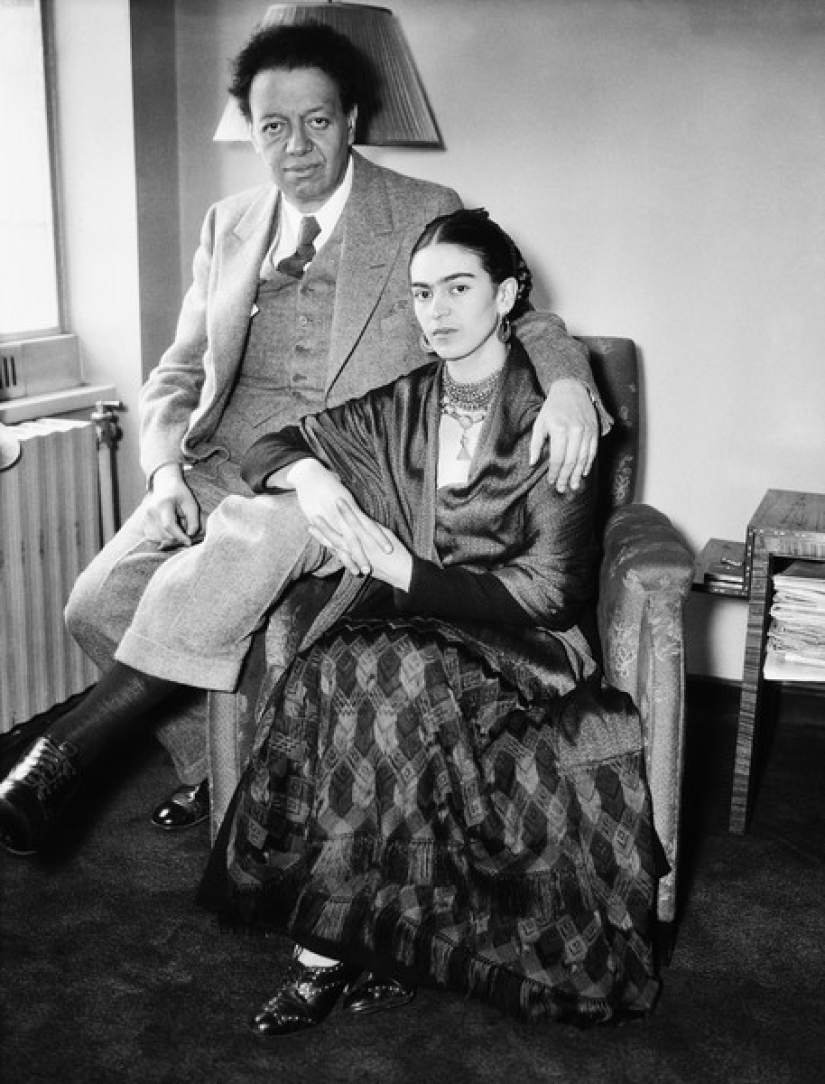
Frida Kahlo and Diego Rivera
In Mexico, Remedios Varo had a hard time at first. There was not enough money and the artist took on a variety of work. Together with Marc Chagall, she created sets and costumes for the ballet "Aleko" based on Pushkin's works, designed cafes and restaurants, made advertising for a chain of pharmacies and even performed technical drawings to order.
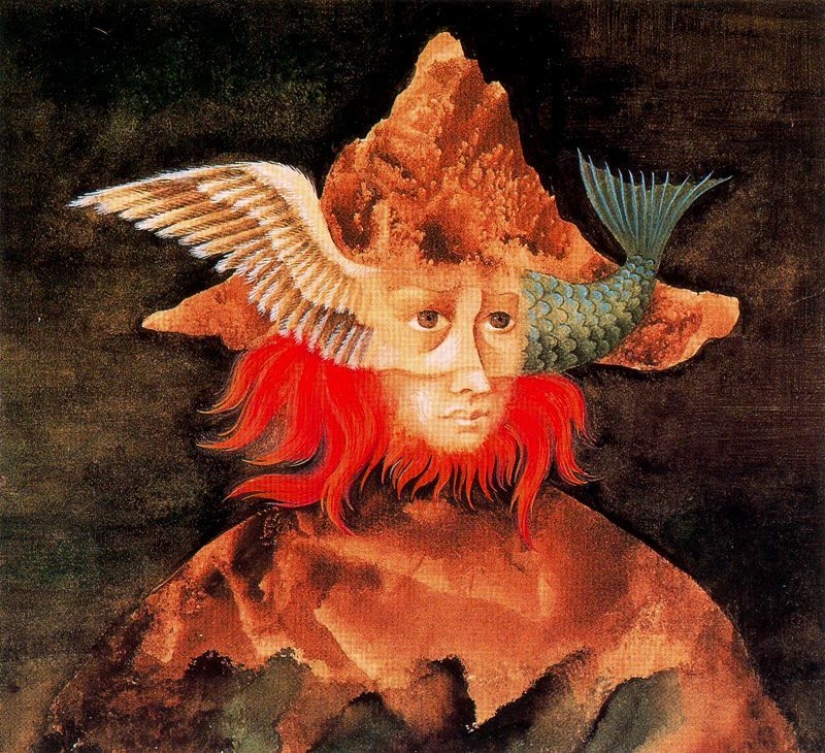
But Mexico has already settled forever in the blood of Varo and she soon returned. In Mexico City, Remedios met Walter Gruen, a former concentration camp prisoner who was looking for a new life overseas. No one treated the artist like Gruen-he simply idolized his beloved. It was during his time that Varo had the most productive period in her work and it was Walter who organized her first solo exhibition.
The name Remedios Varo became known in Mexico, and then in the rest of Latin America. She drew with inspiration, and her beloved Walter took on all the everyday chores and organizational issues. In total, he organized four exhibitions of the artist and planned to hold a fifth, but fate decreed otherwise. On October 8, 1963, Remedios Vara died of a heart attack at the peak of her creative career, at the age of 55.
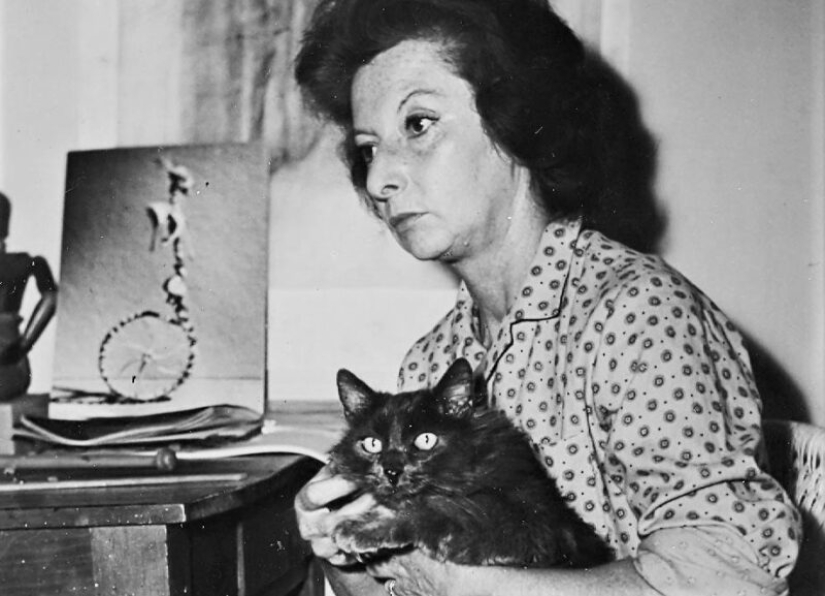
One of the last photos of the artist
Remedios Varo Uranga has remained forever in the history of Mexican art, despite the fact that the spirit of Mexico has not penetrated into her paintings. It is compared by Hieronymus Bosch, as Varo's paintings are filled with mysterious creatures and small details. Many of the artist's works have a religious connotation, but it is not easy to interpret them even for connoisseurs of surrealism. Today, Remedios Varo exhibitions are successfully held in Latin America and the United States. There are fans of her work and in Europe, as well as in Of Russia.
Keywords: World War II | Painting | Spain | Paintings | Mexico | Surrealism | Artist
Post News ArticleRecent articles

It's high time to admit that this whole hipster idea has gone too far. The concept has become so popular that even restaurants have ...

There is a perception that people only use 10% of their brain potential. But the heroes of our review, apparently, found a way to ...
Related articles

Mikhail Vachaev, an artist from Yekaterinburg, is a master with an original style, whose paintings cannot be confused with the ...

Russian artist Andrey Shatilov has chosen a difficult path — he paints oil paintings. In the digital age this commitment to ...

Artists perpetuate the images of his muses in paintings, sculptures and other works. Them they draw inspiration for creativity. ...

New Year's is a time to surprise and delight loved ones not only with gifts but also with a unique presentation of the holiday ...